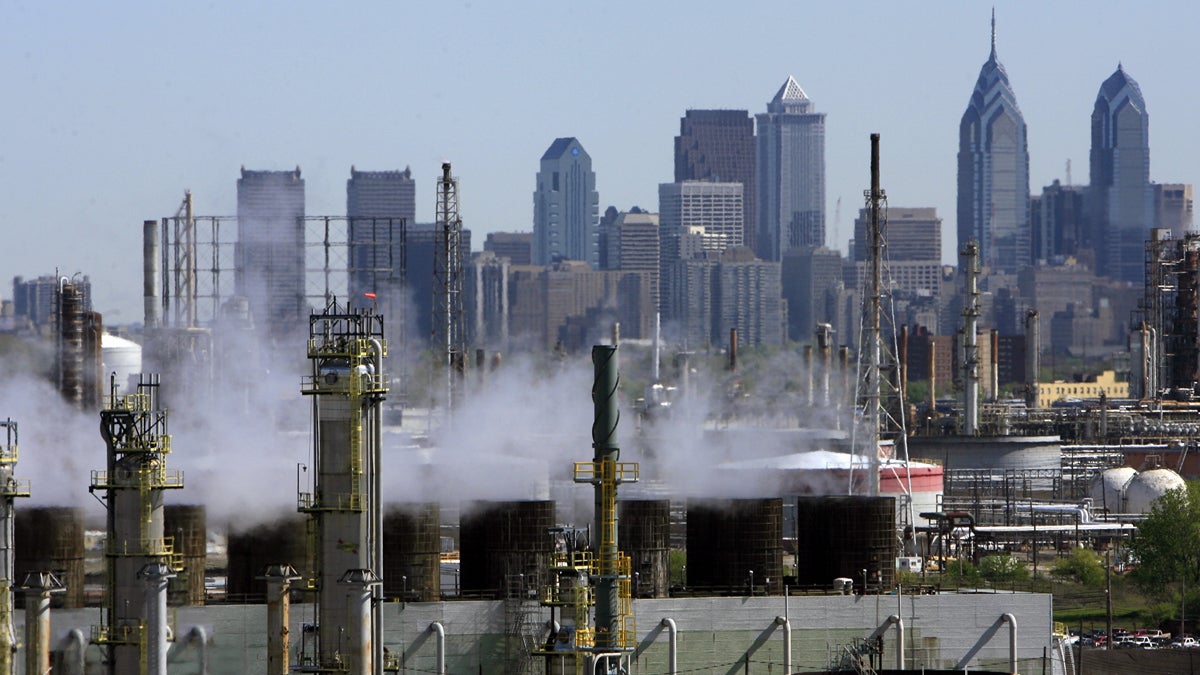Just You Wait: Houston East
Listen
This file photo, shows the Sunoco Philadelphia Refinery,the oldest and largest refinery on the East Coast. (Matt Rourke/AP Photo, file)
In 2013, Pennsylvania became the fastest-growing state for natural gas production, coming in second to Texas for the most gas produced in the entire country. Now, the greater Philadelphia region is poised to take advantage of it.
There’s already buzz about town that Philadelphia is becoming a global “energy hub” – the place where this gas will come to be processed and shipped; where the movers and shakers of the energy industry gather; and where new businesses grow out of this energy-based economy. And by the end of 2014, Mark Alan Hughes thinks you might be living in “Houston East.”
Hughes is a professor at PennDesign and was Philadelphia’s founding director of sustainability. He actually prefers to call Houston “Philadelphia West” because of the city’s historic relationship with the energy industry dating back to the late 1800s.
About 150 years ago, this relationship was based on coal, said Hughes.
Philadelphia, which was founded for its proximity to key waterways, was down hill from the anthracite coal fields of Central Pennsylvania.
“That led to a series of investments in canals, and then railroads, that allowed that coal to come to Philadelphia both for export to the world, as well as for the powering of the manufacturing base that became famously the workshop to the world,” Hughes said.
One big reason the energy industry is turning to Philadelphia is because this infrastructure is already here. The region’s oil refineries have experienced a major comeback over the last two years, thanks to the shale gas boom. There is a major project under way to reverse the flow of an existing pipeline to bring valuable natural gas liquids to the Marcus Hook refinery in Delaware County.
However, Hughes said, it’s easy to see “dollar signs spinning in people’s eyes” without examining the potential risks of an energy-based economy.
“These kinds of ‘buts’ are not deal killers,” said Hughes. “They’re conversations about how environmental interests and economic development interests can speak to each other and discover compromises that they’re all willing to make to maximize the possibilities here.”
WHYY is your source for fact-based, in-depth journalism and information. As a nonprofit organization, we rely on financial support from readers like you. Please give today.

